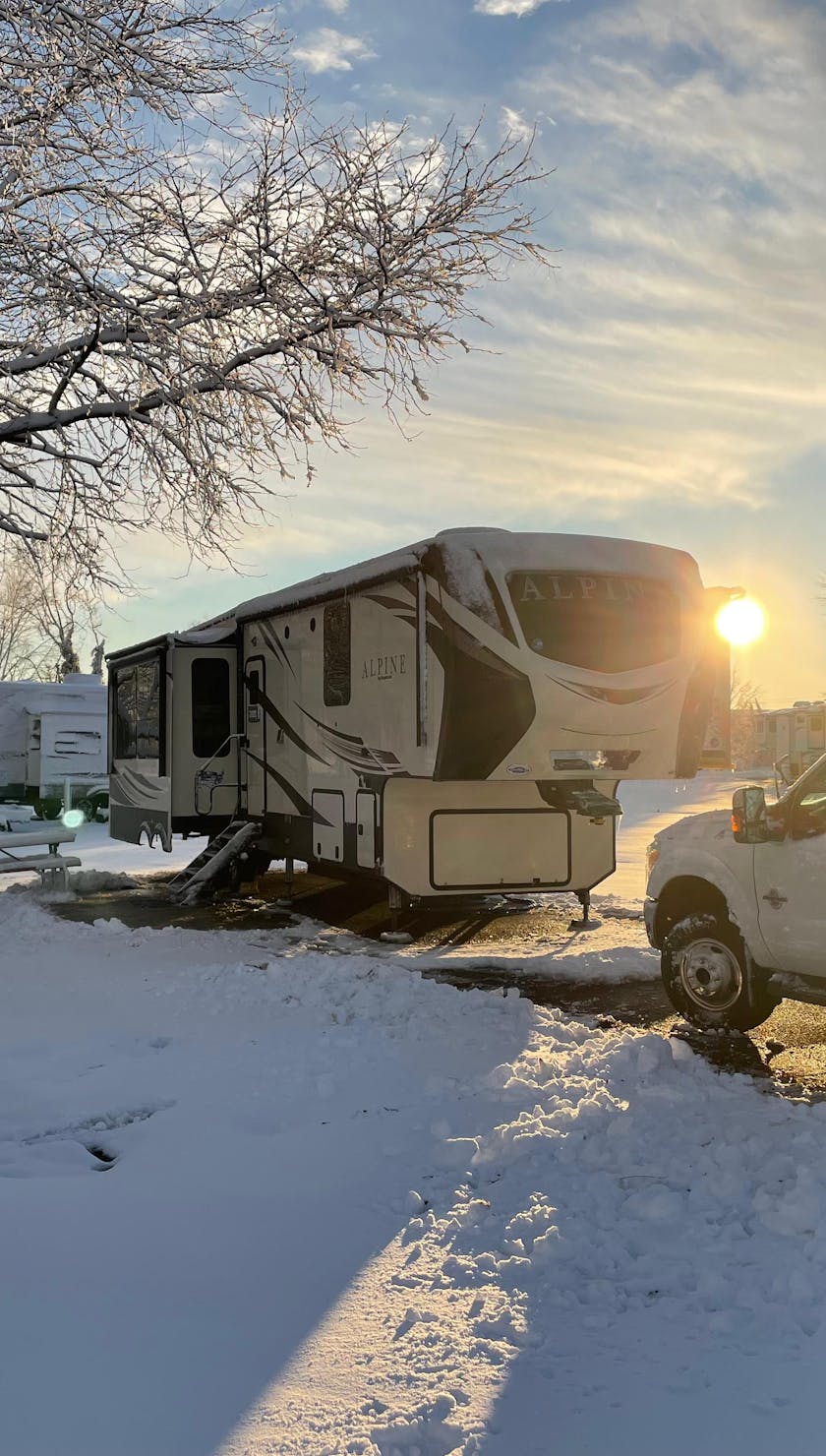As you embark on your journey across the open road, it's essential to be well-prepared for whatever Mother Nature might throw your way. From severe storms and tornadoes to snow and extreme temperatures, this guide will equip you with the knowledge and steps needed to ensure a safe and enjoyable RV travel experience.
Before Hitting the Road
Research Your Route: Take some time to research the weather conditions along your planned route. Stay updated on the latest weather forecasts and any potential severe weather warnings. This information will help you make informed decisions about when and where to travel.
Stay Connected: Invest in a reliable weather app and keep abreast of real-time updates. Many apps provide alerts for severe weather conditions, ensuring that you're always one step ahead. Additionally, consider a NOAA weather radio to receive emergency broadcasts, especially in areas with poor cellular coverage.
Create an Emergency Kit: Prepare a well-stocked emergency kit for your RV. Include essentials like first aid supplies, non-perishable food, water, flashlights, extra batteries, extra blankets, and a weather radio. Tailor the kit to the specific challenges you may encounter.
Check and Maintain Your RV: Regularly inspect and maintain your RV to ensure it's in optimal condition for various weather conditions. This includes checking tires, brakes, top-off propane tanks, and fluid levels. Make sure your RV is insulated for extreme temperatures and that the heating and cooling systems are functioning properly. Cold temperatures affect lead-acid batteries differently. Have a backup plan for power outages if using shore power.
Flexible Travel Plans: Be flexible with your travel plans, especially during peak weather seasons. If severe weather is forecast, consider delaying your journey or rerouting to avoid high-risk areas. Safety should always be the top priority.
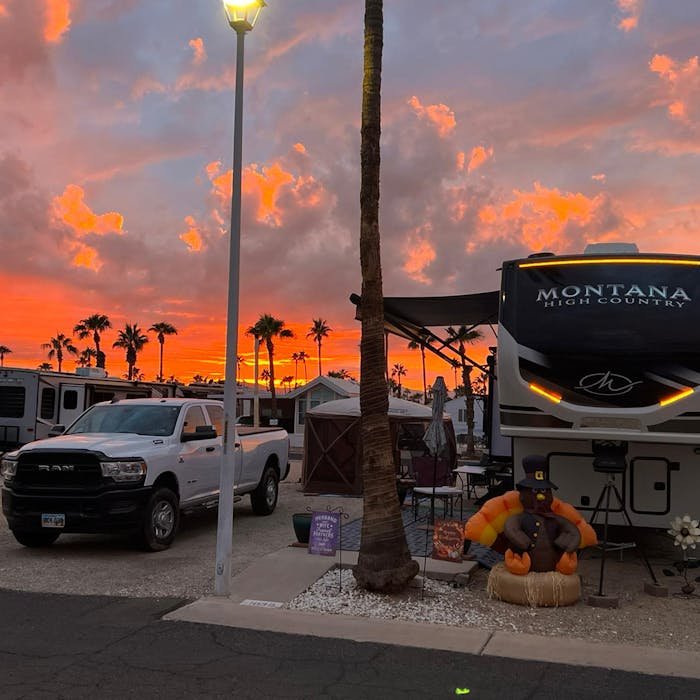
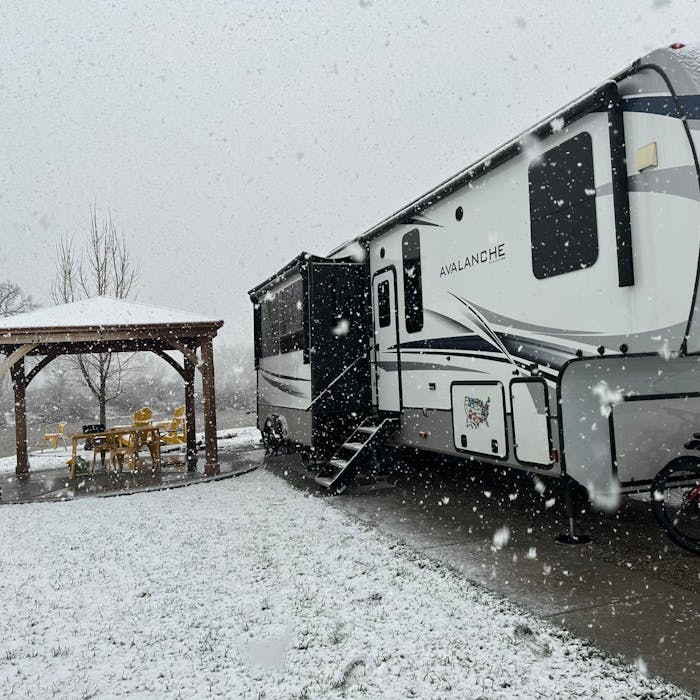
Always have a "Go Bag" ready for yourself, family members and pets. Include important paperwork, passports, meds, wallets, snacks, ped food and treats, water bottles, extra set of clothing and any special." - Marilyn @ My Camping with Views
Download the American Red Cross Emergency: Severe Weather App. It is vital with loud siren warnings on your phone." - Lia @ Llama Llama Adventures
During Travel
Monitor Weather Updates: Stay vigilant about changing weather conditions as you travel. Use your weather app to receive real-time updates and adjust your route if necessary. Being proactive can help you avoid severe weather and ensure a smoother journey.
Drive Cautiously: In adverse weather, adjust your driving habits accordingly. Slow down, maintain a safe following distance, and be mindful of road conditions. If visibility is poor or roads are icy, consider pulling over and waiting for conditions to improve.
Fuel and Provisions: Keep your fuel tank filled, especially when traveling through remote areas where gas stations might be scarce. Ensure you have an ample supply of food, water, and essentials to sustain you in case of unexpected delays.
Communication is Key: Stay in touch with fellow travelers or loved ones during your journey. Share your travel itinerary so someone is aware of your whereabouts. Having a support system can be invaluable in emergencies.
Emergency Services Contact Information: Have a list of emergency contacts, including local authorities, towing services, and your RV insurance provider. Being prepared with this information can expedite assistance in case of breakdowns, accidents, or other emergencies. Check out the American Red Cross Emergency: Severe Weather App.
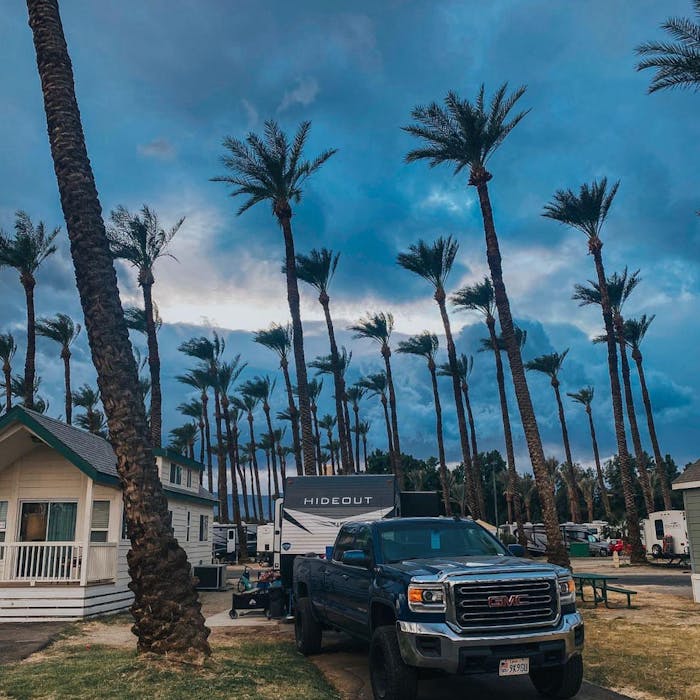
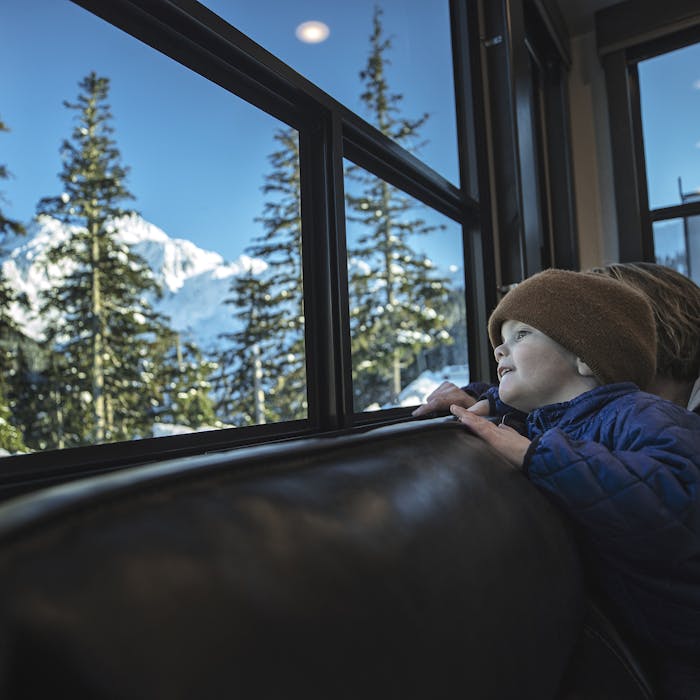
Always know what City, County or Parish you are located!" - Casey @ That Traveling Wife
Fill up your fresh water tank to add weight to lower center of gravity. Plus you'll have fresh water in case of power loss." - Richard @ My Camping with Views
At the Campsite:
Weather-Ready Setup: Choose your campsite wisely, considering its susceptibility to weather conditions. Park in a location that minimizes exposure to strong winds and avoid low-lying areas prone to flooding. Set up your RV with stabilizers and leveling jacks to enhance stability during windy conditions.
Secure Outdoor Items: Just as during travel, ensure that all outdoor items are properly secured at the campsite. Unpredictable weather can arise, and securing items like awnings, chairs, and outdoor equipment prevents damage and promotes safety.
Emergency Escape Plan: Establish an emergency escape plan with your travel companions. Identify the nearest shelter or safe space and ensure everyone knows how to respond in case of severe weather. Practice the plan to enhance everyone's familiarity and readiness.
Connect with Fellow Campers: Engage with other campers to share weather updates and travel tips. Fellow RV enthusiasts can provide valuable insights and even collaborate on preparing for or navigating through severe weather.
Ask Campground Hosts where Tornado and Storm Shelters are located." - Dawn @ Our Road to Camelot
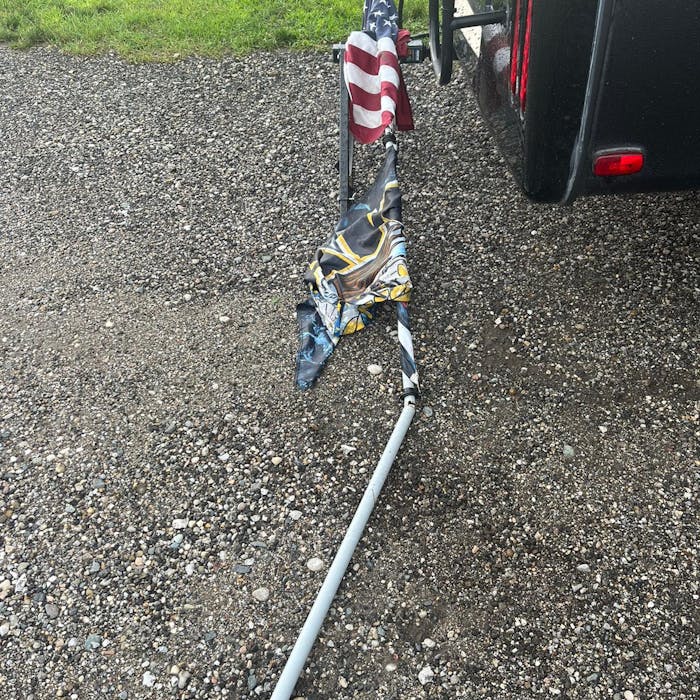
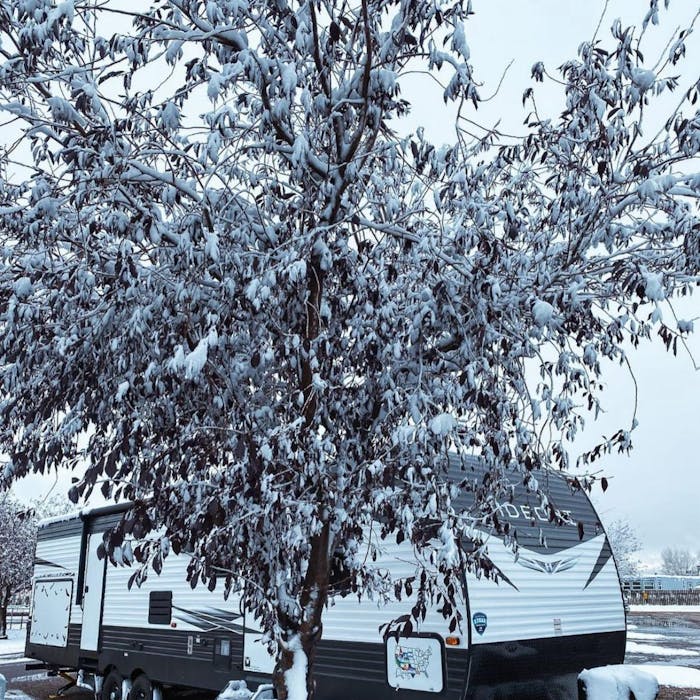
Remember, adaptability is key when traveling in an RV. By staying prepared and flexible, you can navigate various weather conditions and make the most of your RV adventure while prioritizing safety and comfort.
Camp Better!
Take advantage of the wheels your RV has and MOVE AWAY from dangerous conditions!" - Jerry @ Happy Place Diaries
